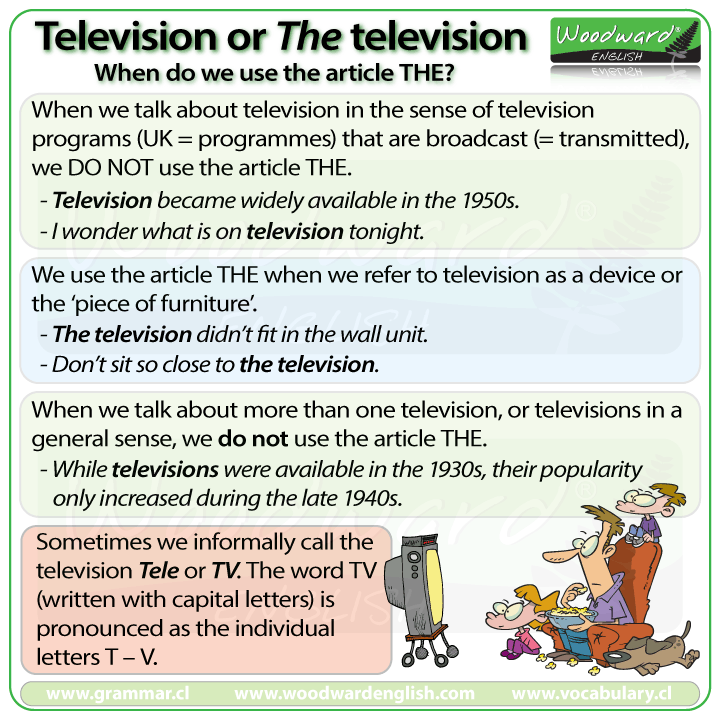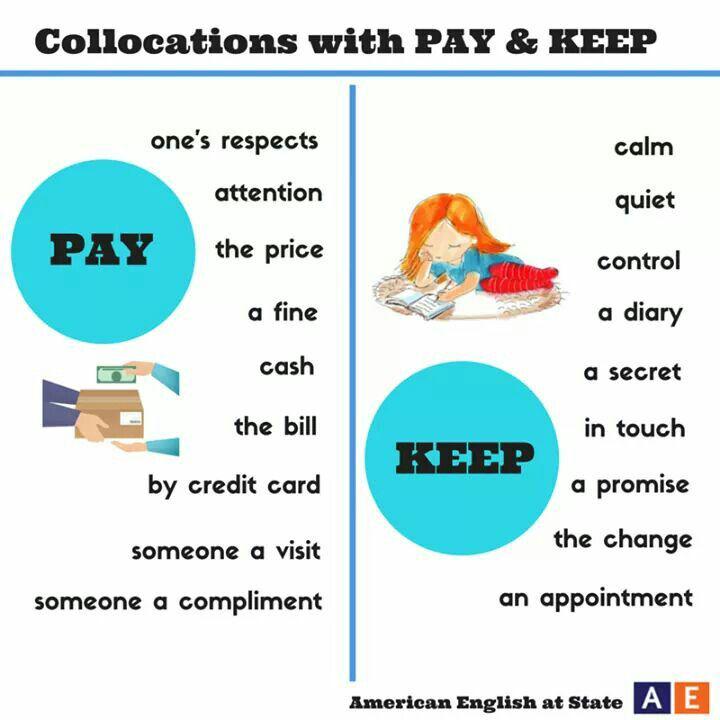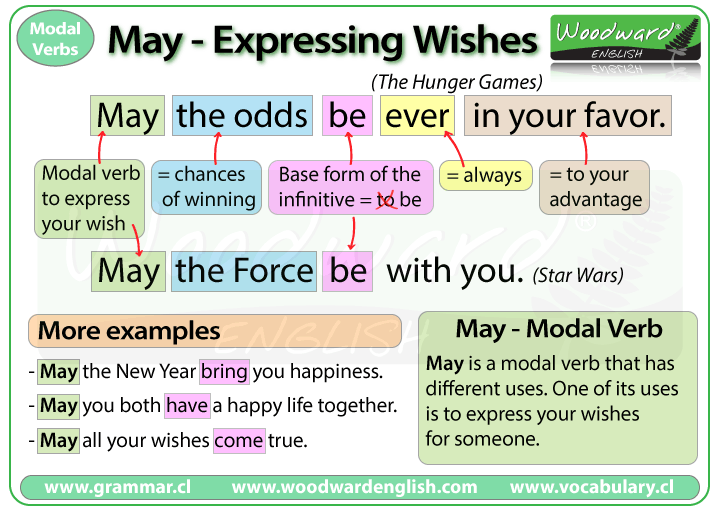
Wednesday, 23 December 2015
Tuesday, 15 December 2015
Monday, 14 December 2015
Friday, 4 December 2015
Mispronounced Words
A good exercise of listening and vocabulary.
Tuesday, 24 November 2015
Thursday, 19 November 2015
Tuesday, 17 November 2015
Saturday, 14 November 2015
Friday, 13 November 2015
Wednesday, 11 November 2015
Tuesday, 10 November 2015
Sunday, 8 November 2015
Thursday, 29 October 2015
Friday, 23 October 2015
Tuesday, 20 October 2015
Monday, 19 October 2015
Wednesday, 7 October 2015
Tuesday, 6 October 2015
Monday, 5 October 2015
Friday, 2 October 2015
Thursday, 24 September 2015
Monday, 21 September 2015
Friday, 18 September 2015
Monday, 14 September 2015
Sunday, 13 September 2015
Thursday, 10 September 2015
Monday, 7 September 2015
Wednesday, 2 September 2015
Tuesday, 1 September 2015
Matrículas Cursos de Inglés
Esta tarde, en horario de 16:00 a 21:30 h comenzarán a realizarse las matrículas para los cursos de inglés en los que haya plazas libres.
En caso de no haber plaza, se apuntará a los solicitantes en lista de espera para el curso que soliciten.
En caso de no haber plaza, se apuntará a los solicitantes en lista de espera para el curso que soliciten.
Monday, 31 August 2015
ANULACIÓN Matrícula
Buenos días a todos, os recuerdo que mañana día 1 septiembre comienza el plazo para anular la matrícula para el próximo curso de inglés 2015-2016.
Si por cualquier motivo no os resulta posible asistir a las clases este curso, debéis pasaros por el nuestro centro (Edificio Ovoide), en horario de tarde hasta el día 15 de este mes y rellenar un impreso que allí se os proporcionará.
Esta información es importante, no sólo por que hay muchos alumnos esperando a incorporarse a las clases, sino porque se os cobrará el importe de la matrícula si no lo hacéis así.
Un saludo
Si por cualquier motivo no os resulta posible asistir a las clases este curso, debéis pasaros por el nuestro centro (Edificio Ovoide), en horario de tarde hasta el día 15 de este mes y rellenar un impreso que allí se os proporcionará.
Esta información es importante, no sólo por que hay muchos alumnos esperando a incorporarse a las clases, sino porque se os cobrará el importe de la matrícula si no lo hacéis así.
Un saludo
Wednesday, 12 August 2015
Friday, 7 August 2015
23 words that everyone spells wrong
Of course, not everyone spells these words wrong – but lots of people do! Let’s have a look at a
few words that are always putting our spelling to the test. From silent
letters to devious double letters, English doesn’t make spelling easy.
1. weird (wierd)
Breaking everyone’s favourite spelling rule – ‘i’
before ‘e’ except after ‘c’ – the word weird is, well, weird.
2. accommodate (acommodate,accomodate)
The easiest way to remember the two double letter
pairings in accommodate is to remember that this word ‘accommodates’ a lot of letters.
3. handkerchief (hankerchief)
The lurking ‘d’ in handkerchief can be remembered by thinking about the fact that these squares of
nose-blowing cloth fit in one’s hand. Don’t get confused by the shortenedhanky! (Nor should
you try adding a ‘d’ in there: handky is far from
correct.)
4. indict (indite)
The silence ‘c’ in indict (and related words indictment,indictable, etc.) baffles lots of people, both in its spelling andits pronunciation.
5. cemetery (cemetary)
Though many are tempted, there is no ‘a’ in cemetery. You might contrast the word with graveyard, which has two
‘a’s.
6. conscience (conscence,conscious)
The first step is to avoid confusing conscience – a person’s moral sense of right and wrong (noun) – and conscious – aware and responding to one’s surroundings (adjective). Once you clear
that hurdle, you need to make sure that ‘science’ makes an appearance in your
spelling.
7. rhythm (rythm, rhythym, etc.)
This notorious word boasts only a single vowel – and
‘y’, at that! – plus a couple of ‘h’s running amok. The related wordrhyme is only slightly easier.
8. playwright (playwrite)
Even though playwrights do write, the ‘wright’ in this word actually refers to a builder, as in similar
words like shipwright. You can remember this by thinking of a playwright as
someone who ‘builds’ a theatre experience.
9. embarrass (embarass, embaress)
This word unequivocally demonstrates that language has
a sense of humour. Why else make the word embarrassembarrassingly difficult to spell?
10. millennium (millenium)
The incorrect spelling of millennium with only a single ‘n’ is very common, possibly because similar words, such
asmillenarian and millenary, follow this single ‘n’ pattern. When you’re talking about the
‘millennial’ generation, take to care to keep that second ‘n’ in there.
11. pharaoh (pharoh)
Given the world’s fascination with ancient Egypt,
you’d think that the word for their rulers wouldn’t present such a problem, but
the sneaky ‘ao’ in the second syllable is a tricky one.
12. liaison (liason)
Both liaison and liaise boast that tricky triple vowel, a gift from French.
13. convalesce (convalece)
The -sce ending in convalesce is a spelling difficulty that crops in several English words that have a
Latin origin, including acquiesce, coalesce, and incandesce.
14. supersede (supercede)
Derived from the Latin word supersedere, this word is frequently misspelled as supercede thanks to the influence of words like accede and intercede.
15. ecstasy (ecstacy)
Ecstasy may turn to despair when you realize that
you’ve assumed that the ‘c’ at the start of ecstasy makes a later reappearance.
16. Caribbean (Carribean,Caribean)
The Caribbean tropics may seem slightly less alluring
once you realize how much trouble you have spelling this name.
17. harass (harrass)
While harass may have two
different pronunciations, it doesn’t have two r’s!
18. maintenance (maintainence)
Although maintenance often implies
the maintaining of something, the word does not have maintain in it.
19. pronunciation (pronounciation)
Even though the verb form of this word is pronounce, the noun – pronunciation – does not have that ‘o’ in the middle. Before writing
the word out, you might try saying bothpronunciation and pronounce out loud and hear the difference yourself.
20. Arctic (Artic)
Although the pronunciation without the ‘c’ sound is
considered acceptable, the spelling still requires that the ‘c’ be present.
(The same goes for Antarctica.)
21. occurred (ocurred, occured)
Make sure that you double both the ‘c’ and the ‘r’
when you use the past tense of occur! Many verbs
ending in a single ‘r’ will take a double ‘r’ in the past tense, such as recur, blur, and refer.
22. recommend (reccommend,reccomend)
Another double-letter kerfuffle, recommend might seem as though it deserves a second ‘c’, but the word only has one.
23. deductible (deductable)
This word is one of many examples of -ibles and -ables
that may easily be confused. Check out ‘Words ending in -able or -ible’ for help on figuring these out.
From OxfordWords blog
Tuesday, 28 July 2015
Tuesday, 21 July 2015
Monday, 20 July 2015
Sunday, 19 July 2015
Tuesday, 14 July 2015
Monday, 13 July 2015
Wednesday, 8 July 2015
Thursday, 25 June 2015
Tuesday, 23 June 2015
Sunday, 21 June 2015
Thursday, 18 June 2015
Wednesday, 17 June 2015
Tuesday, 16 June 2015
Monday, 15 June 2015
New words added to OxfordDictionaries
Social media and technology
The world of social media and technology continue to
advance, and these changes bring new vocabulary with them. The word selfie was crowned Oxford Dictionaries’ Word of the Year in 2013, thanks to its use in social media, and it is now joined in OxfordDictionaries.com by selfie stick. This device – ‘a rod on which a camera or smartphone may be mounted,
enabling the person holding it to take a photograph of themselves from a wider
angle’ – has grown hugely in popularity (and, in some corners, unpopularity),
as has the term designating it, which is accordingly added to the dictionary.

The rise of social media also brings with it a rise in
a certain sort of troll. The sense of troll referring to ‘a person who makes a deliberately offensive or provocative
online post’ is already in OxfordDictionaries.com; it is now joined by the specific variety concern troll: ‘a person who disingenuously expresses concern about an issue with the
intention of undermining or derailing genuine discussion’.

The noun mainstream (‘the ideas,
attitudes, or activities that are shared by most people and regarded as normal
or conventional’), and the equivalent adjective mainstream, will probably be long-familiar words. Now the informal, derogatory term lamestream is also included
in the dictionary: it is a blend of lame (with the sense
‘uninspiring and dull’) and mainstream, and is ‘used
to refer contemptuously to the mainstream media’ as both a noun and an
adjective.
Other new words in the spheres of social media,
technology, and science include
in-app, kill switch, downvote, upvote,revenge porn, cyberwarrior, cybertheft, fintech, cyclogenesis,organoid, telehealth, and weather bomb.
Slang and topical
Some terms have grown in popularity because of recent
events or topical discussions. In the recent British General Election, much
news coverage was devoted to the right-wing political party UKIP (United
Kingdom Independence Party). Although the party only secured one seat, there
was enough discussion to popularize the informal noun Ukipper (orUKIPper) for ‘a member
or supporter of UKIP’.
The run up to the election also saw notable uses of
another new entry: brain fade, ‘a temporary inability to concentrate or think clearly’. Prime Minister
David Cameron blamed brain fade when he accidentally
announced his footballing allegiance to West Ham
United rather than Aston Villa, while Green party leader Natalie Bennett said brain fade was responsible
for a radio interview that she
confessed was ‘very bad’.
Bae was on the
shortlist for 2014’s Word of the Year, and is now in OxfordDictionaries.com. Bae is used as an informal term of endearment for one’s romantic partner,
especially among young people in North America. It originated as an
abbreviation of baby or babe (and probably not an acronym of ‘before anyone
else’, though this has been suggested), and has proliferated through use on
social media and in hip-hop and R&B lyrics.

Friday, 12 June 2015
Monday, 8 June 2015
"How are you?" in British English
In this lesson, you'll learn how to ask and answer "How are you?" in British English.
Sunday, 7 June 2015
Friday, 5 June 2015
Wednesday, 3 June 2015
Tuesday, 2 June 2015
Common mistakes
No podría estar más de acuerdo con este artículo, en el que Mónica enumera los errores más comunes de estrategia que cometen los alumnos que deciden hablar inglés DE VERDAD. Thanks Monica!

Mistakes

Mistakes
Friday, 29 May 2015
Subscribe to:
Comments (Atom)











































